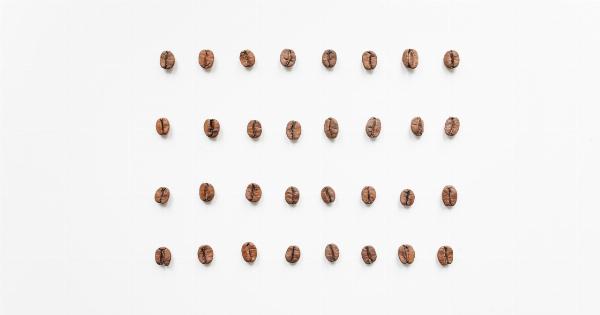Alcohol is a part of many cultures around the world and is often consumed as a means to celebrate or socialize.
However, alcohol consumption has also been linked to many negative health consequences, including addiction, liver disease, and various cancers. Despite this, there are several myths associated with alcohol consumption that perpetuate harmful behaviors and attitudes.
Myth 1: Drinking Beer is Less Harmful than Drinking Spirits
Many people believe that beer is less harmful than other types of alcohol, such as spirits. However, this is a myth.
While beer typically contains a lower percentage of alcohol than spirits, the volume of beer consumed is often larger than the amount of spirits consumed in a single sitting. This means that a person consuming beer may actually be ingesting more alcohol than someone drinking spirits.
In addition, beer contains “empty” calories, meaning that it has no nutritional value. This can lead to weight gain and other health problems.
Furthermore, the belief that beer is less harmful than other alcohol types can encourage heavy drinking and bingeing behaviors.
Myth 2: Drinking Makes You More Creative and Sociable
Many people believe that alcohol can enhance creativity and sociability. While alcohol may initially make a person feel more relaxed and sociable, it can also impair cognitive function and negatively affect judgment.
This can lead to poor decision-making and behavior that can be harmful to both the individual and those around them.
Furthermore, while some people may feel more creative while under the influence of alcohol, research has shown that alcohol can actually impair creative thinking and problem-solving abilities over time.
This means that any perceived benefits of alcohol on creativity are short-lived and can be outweighed by the negative consequences.
Myth 3: Drinking is Essential for Socializing and Celebrating
Drinking is often seen as an essential part of socializing and celebrating in many cultures. However, this is another myth that can be harmful.
Alcohol consumption can lead to risky behavior and negative health consequences, and it is possible to socialize and celebrate without alcohol.
There are many alternative ways to enjoy socializing and celebrating that do not involve alcohol.
For example, activities such as hiking, playing board games, or attending a concert can be just as enjoyable without the risks associated with alcohol consumption.
Myth 4: Drinking is Safe in Moderation
While it is true that moderate alcohol consumption may not have negative health consequences for everyone, the definition of “moderate” varies depending on the individual.
In addition, there is no safe level of alcohol consumption when considering the risk of addiction and the potential for negative consequences.
Furthermore, what one person considers “moderate” may not be the same for someone else.
For example, someone who is addicted to alcohol may not be able to drink in moderation and may be putting themselves at risk of negative consequences even if they believe they are consuming alcohol in a moderate manner.
Myth 5: Drinking Can Help You Sleep Better
Many people believe that alcohol can help them sleep better at night. While it is true that alcohol can initially make a person feel drowsy, it can also disrupt the sleep cycle and lead to poor quality sleep.
Alcohol consumption has been linked to sleep disorders such as insomnia, sleepwalking, and nightmares.
In addition, alcohol can lead to dehydration and frequent urination, further disrupting sleep. While alcohol may have a short-term effect on sleep, over time it can lead to more severe sleep problems.
Myth 6: Drinking is only Harmful if You Get Drunk
Many people believe that the only time alcohol consumption is harmful is when they get drunk. However, this is not true. Even moderate alcohol consumption can lead to negative consequences such as liver damage, cancer, and addiction.
Furthermore, drinking alcohol can lead to decision-making that can be harmful even when a person is not technically “drunk”. For example, drinking and driving is one behavior that can be dangerous even if a person does not feel intoxicated.
Myth 7: Drinking is a Normal Part of College Life
College culture often promotes heavy drinking as a normal part of socializing and partying.
However, this myth can perpetuate harmful behaviors that can lead to negative consequences such as academic failure, addiction, and increased risk of sexual assault.
It is possible to enjoy college life without drinking alcohol, and many universities offer alternative events and activities for students who choose not to drink.
By promoting a culture of moderation and responsible behavior, colleges can help prevent the negative consequences associated with heavy drinking.
Myth 8: Drinking Can Help You Cope with Stress and Anxiety
Many people believe that drinking alcohol can help them cope with stress and anxiety. While alcohol may provide temporary relief from anxiety, it can also lead to dependence and worsen anxiety symptoms over time.
In addition, using alcohol as a coping mechanism can lead to an increased risk of addiction and other negative consequences. There are many alternative ways to manage stress and anxiety, including exercise, meditation, and therapy.
Myth 9: Drinking Can be Good for Your Heart
Some studies have suggested that moderate alcohol consumption can have heart-healthy benefits. However, this myth is misleading because the risks associated with alcohol consumption far outweigh any potential benefits.
For example, moderate alcohol consumption has been linked to an increased risk of certain types of cancer, liver disease, and other negative health consequences.
In addition, there are many alternative ways to promote heart health, such as eating a healthy diet and exercising regularly.
Myth 10: Drinking Can Help You Forget Your Problems
Many people turn to alcohol as a way to forget their problems and escape from reality. However, this myth can lead to a cycle of dependency and negative consequences.
Using alcohol as a way to cope with problems can lead to addiction and an increased risk of other negative consequences such as relationship problems, financial difficulties, and health problems.
There are many alternative ways to manage stress and cope with problems that do not involve alcohol, such as talk therapy and mindfulness meditation.






























